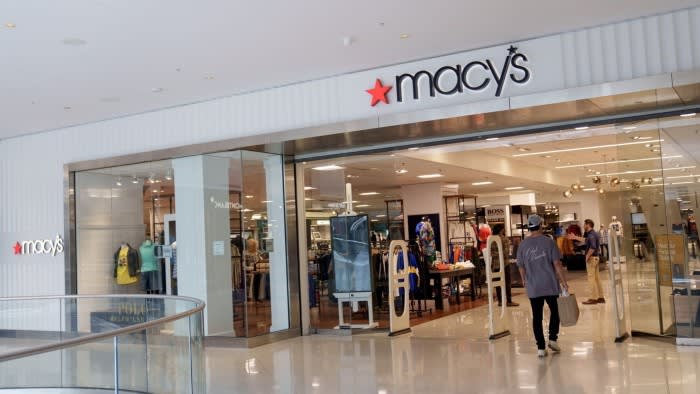Unlock the Editor’s Digest for free
Roula Khalaf, Editor of the FT, selects her favourite stories in this weekly newsletter.
It used to be that the goal for any company was to go public. These days, the opposite appears true. At least, that is the case with US department store operators, where private ownership is back in vogue.
For proof, look no further than Nordstrom. Members of the founding Nordstrom family have teamed up with a Mexican retailer to try to take the department store chain private.
Elsewhere Macy’s has rebuffed repeated attempts by Arkhouse Management and Brigade Capital Management to acquire it. Saks Fifth Avenue owner Hudson’s Bay Company, which went private in 2020, is in the midst of a merger with luxury department store operator Neiman Marcus.
Some companies’ return to private ownership cannot be helped. Sears, JCPenney, Bed Bath & Beyond and Pier 1 are among those that have filed for bankruptcy and re-emerged under private ownership in recent years.
Those that are still publicly listed have struggled. At Nordstrom, revenue for its most recent fiscal year, at $14.7bn, is higher than it pulled in a decade ago. But the company earned just a fifth in terms of net income of what it did back in 2014. The decline is even more dramatic at Macy’s. The company eked out just $105mn in net income in its last fiscal year, compared with $1.5bn a decade ago.
Not all take-private bids are created equal. Suitors who were knocking on Macy’s doors had little interest in fixing its retail business. They just want to get their hands on its vast real estate holdings. A sale and leaseback would unlock immediate gains for any new owners. But it would also leave Macy’s exposed to rising rent payments and limit its ability to reinvest in the core retail business. Sears, which filed for bankruptcy in 2018, is a reminder of the strategy’s pitfalls.
Nordstrom, on the other hand, is being pursued by members of the founding family. They just want to get Nordstrom off the hamster wheel of quarterly earnings and focus on fixing its retail business.

Going private might take a company out of the limelight. But the challenges remain the same: department stores struggle to set themselves apart. They are squeezed by luxury retailers on one side and discount chains such as TJ Maxx on the other. Underscoring this, TJX, the parent company, has seen its share price triple over the past 10 years. It now has a market valuation of $135bn, or about 17 times more than the value of Macy’s and Nordstrom combined.
The department store concept itself is increasingly obsolete. Many brands that were once a top draw for department stores now prefer to sell directly to customers. These are problems that are not easier to answer away from the market.


